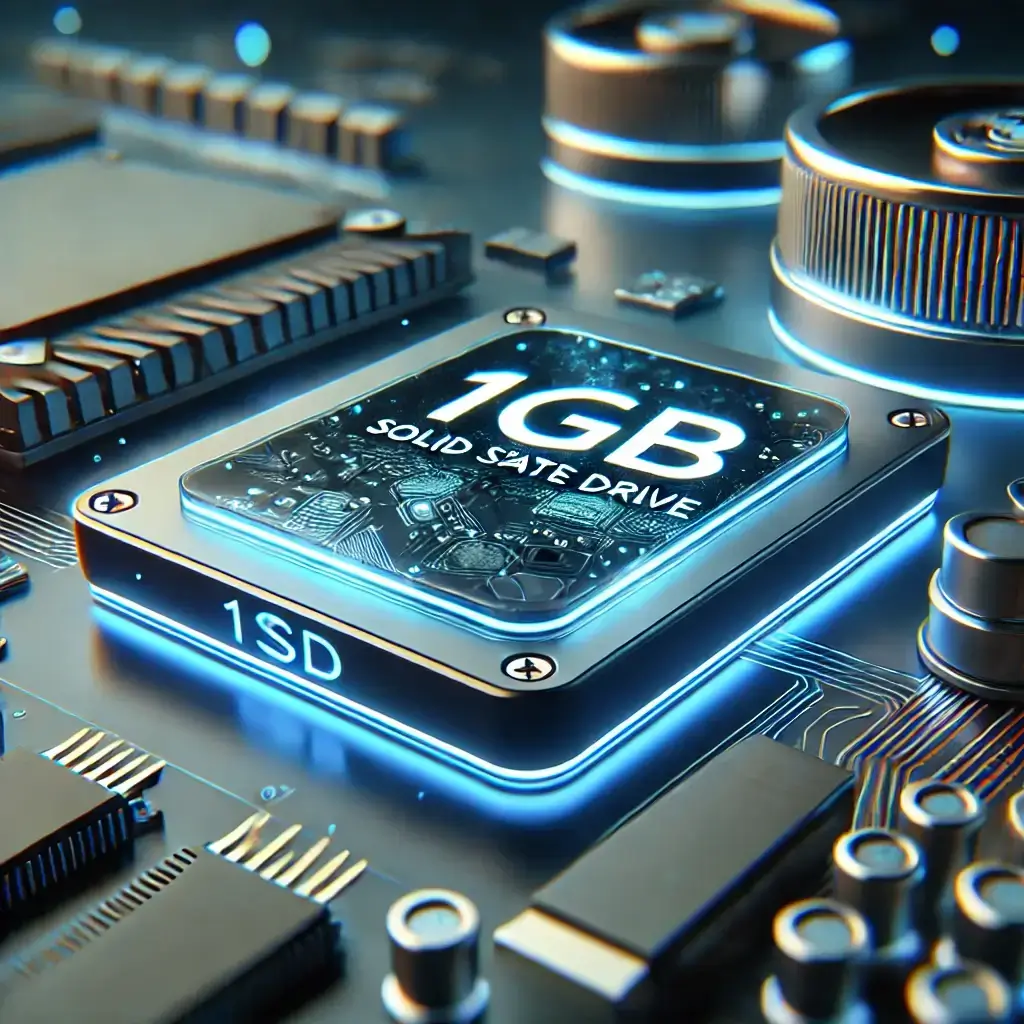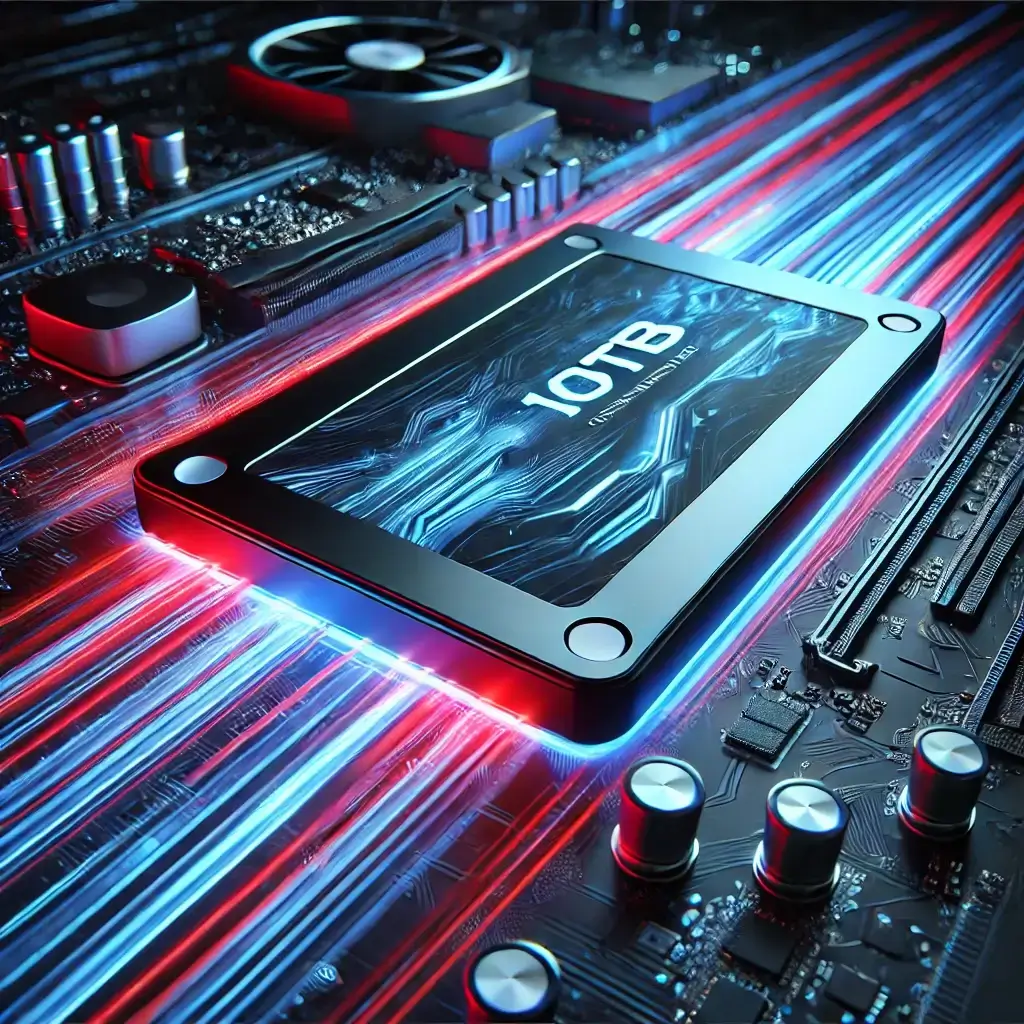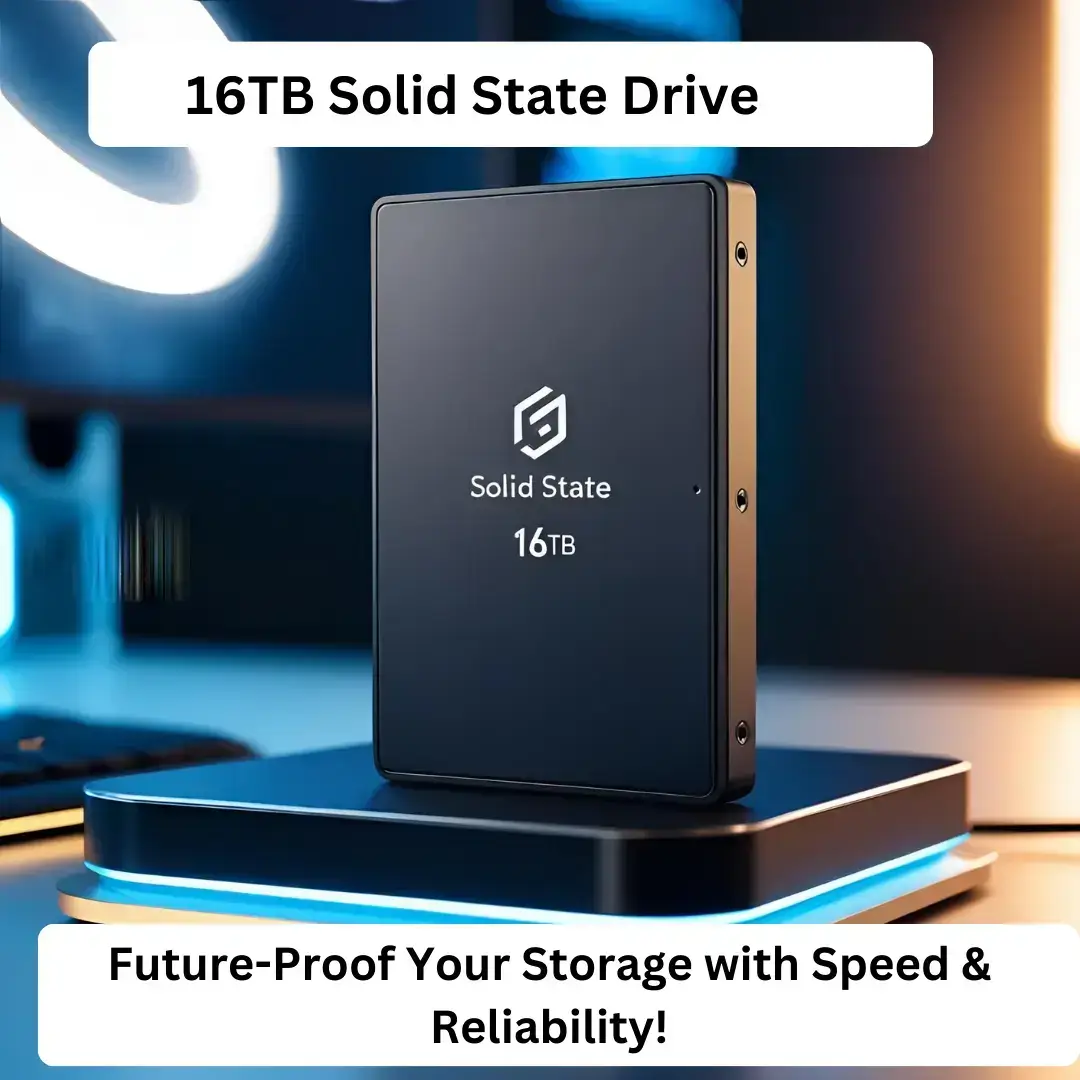When you think of an SSD (solid state drive), you probably imagine fast speeds, reliable performance, and plenty of storage space. But what if I told you that a 1GB solid state drive still exists? You might be wondering—is a 1GB SSD even practical in today’s computing world? With modern applications demanding more storage, can a 1GB SSD drive keep up? Let’s dive in and find out.
1. Understanding 1GB SSD Storage
What Is a 1GB Solid State Drive?
A 1GB SSD drive is exactly what it sounds like—a solid state drive with only 1GB of storage. Unlike modern high-capacity SSDs, which range from 128GB to multiple terabytes, this type of drive offers extremely limited space.
Back in the early days of SSD storage, 1GB SSDs were revolutionary. They were faster than traditional HDDs (hard disk drives) and used in specialized applications like embedded systems and industrial devices. But today, they are nearly extinct.
1GB SSD vs. Modern SSDs: A Huge Difference
Let’s be real—a 1GB solid state drive is nowhere near practical for everyday use. Here’s how it compares to modern SSDs:
| Feature | 1GB SSD | 128GB+ SSD |
| Storage Capacity | Extremely low | High enough for OS, games, files |
| Speed | Slower than newer SSDs | Much faster due to latest tech |
| Use Cases | Niche applications | General computing, gaming, work |
| Availability | Rarely sold today | Widely available |
With the SSD read and write speed improvements in recent years, modern SSDs are miles ahead in terms of both performance and storage efficiency.
How Fast is a 1GB Solid State Drive?
Speed-wise, a 1GB SSD can still outperform an old HDD, but it doesn’t hold a candle to the SSD data transfer rate of newer models. While it may offer decent boot-up speeds, it lacks the space needed for modern computing tasks.
SSD Speed vs. Capacity: Does Size Affect Performance?
Yes, it does. Storage capacity directly impacts SSD performance. A solid state drive 1GB has fewer NAND chips, limiting its ability to transfer data quickly. This is why a 1TB SSD isn’t just larger—it’s also significantly faster and more efficient.
Table of contents
- 1. Understanding 1GB SSD Storage
- 2- Understanding 1GB SSD Storage
- 3. Can You Still Buy a 1GB SSD Today?
- 4. How Fast is a 1GB Solid State Drive?
- 5. What Can You Do with a 1GB SSD?
- 6. What Are the Best Alternatives to a 1GB SSD?
- 7. How Much Does a 1GB SSD Cost Today?
- 8. The Future of SSDs: What’s Next?
- 9. How Reliable is a 1GB SSD? (Performance & Lifespan)
- 11. FAQs: Answering Common Questions
2-Understanding 1GB SSD Storage
Many people assume that a 1GB solid state drive is still a functional storage solution, but that’s far from reality. In today’s world, where operating systems, apps, and media files demand more space, a 1GB SSD drive is practically useless. Even a simple OS installation exceeds this capacity, making it impossible to use effectively. So, what exactly is a 1GB SSD, and why is it no longer relevant? Let’s break it down.
What is a 1GB Solid State Drive?
A 1GB solid state drive is one of the earliest forms of SSD storage, designed during a time when files were much smaller, and system requirements were minimal. Unlike hard disk drives (HDDs), SSDs use flash memory for faster data access and improved durability. However, with only 1GB of storage, there’s little room for modern applications, operating systems, or even essential software updates.
Why is 1GB SSD Storage No Longer Practical?
The biggest issue with a 1GB SSD drive is its severely limited space. Here’s why this tiny storage size is no longer practical:
1. Modern OS Requirements Have Outgrown It
Most operating systems today require at least 20GB of storage for installation. Even lightweight Linux distributions need more than 1GB to run properly. This makes a 1GB solid state drive useless for modern computing needs.
2. No Room for Applications or Files
Forget about installing software—even the smallest apps require more than 1GB of space. Web browsers, office programs, and even simple utilities exceed this limit. Plus, with media files like high-resolution images, music, or videos, storage fills up instantly.
3. Poor Performance and Limited Functionality
Even if you could somehow use a 1GB SSD drive, performance would be awful. SSDs rely on wear leveling and free space to maintain speed, and with only 1GB available, the drive would slow down quickly due to constant overwrites.
4. Better Storage Options Exist
Storage technology has advanced significantly. Today, you can get a 128GB, 256GB, or even 500GB SSD at an affordable price. These drives offer better performance, more space, and longer lifespan compared to an outdated solid state drive 1GB model.
3. Can You Still Buy a 1GB SSD Today?
Are 1GB SSDs Still Being Manufactured?
The short answer? Not really. Most SSD manufacturers no longer produce solid state drive 1GB models because they are obsolete.
However, you might still find legacy 1GB SSDs in industrial applications, embedded devices, and specialized tech that doesn’t require high storage. Some old stock or refurbished 1GB SSD drives may pop up on resale sites, but they are rare.
Price Comparison: 1GB SSD vs. Larger SSDs
Surprisingly, if you do find a 1GB SSD, it may cost more per gigabyte than a modern 128GB SSD. Why? Because manufacturing small-capacity SSDs is inefficient in today’s market.
For example, a cheap solid state drive with 128GB or 256GB often sells for under $30, while a niche 1GB SSD drive could be priced similarly due to its rarity.
Is It Worth Buying a 1GB SSD in 2025?
In most cases, no. Even if you find a 1GB SSD, it won’t be practical for general use. Instead, you’re better off investing in a tiny SSD for portable devices with at least 128GB of storage.
4. How Fast is a 1GB Solid State Drive?
Understanding SSD Speed & Performance
Even though 1GB SSDs were once considered fast, they simply can’t compete with modern SSD read and write speeds. A 1GB solid state drive is likely using older SATA technology, which means:
- Slower data transfer rates compared to NVMe SSDs.
- Lower efficiency due to older NAND flash memory.
- Limited ability to handle multiple operations at once.
SSD Speed vs Capacity: Does Size Matter?
Yes, SSD speed is affected by storage size. Larger SSDs use more NAND chips, allowing them to perform faster data transfers. That’s why a 1TB SSD is not only bigger but also significantly faster than a 1GB SSD drive.
Here’s a simple comparison:
| SSD Size | Average Speed (Read/Write) |
| 1GB SSD | 100 – 150 MB/s (SATA) |
| 128GB SSD | 400 – 550 MB/s (SATA) |
| 1TB SSD (NVMe) | 2000 – 7000 MB/s |
Can a 1GB SSD Still Be Used for Anything?
While a solid state drive 1GB won’t work for storing modern apps, it might still serve a few purposes:
- Boot drive for Linux or lightweight OS – Some minimalist setups use tiny SSDs for booting.
- Cache storage – It can be used as a small temporary storage drive.
- Low-power embedded devices – Some IoT devices and microcontrollers use 1GB flash SSDs.
However, if you need speed and storage efficiency, a 1GB SSD isn’t practical in today’s world.
5. What Can You Do with a 1GB SSD?
Can You Run an Operating System on a 1GB SSD?
Many people assume that any SSD can handle an operating system, but that’s not the case with a 1GB SSD drive. Modern operating systems require much more storage. Windows 10 and 11 need at least 64GB, while macOS requires 15GB or more just for installation. Even lightweight Linux distros, which are known for their minimal storage requirements, typically need at least 2GB to run smoothly.
Some ultra-lightweight Linux versions, such as Puppy Linux or Tiny Core Linux, can technically fit within 1GB, but the experience will be extremely limited. You won’t be able to install extra software, store files, or update the system efficiently.
Pros of Using a 1GB SSD for an OS:
- Boots faster than an HDD (if the OS fits).
- Uses less power, making it ideal for embedded systems.
Cons of Using a 1GB SSD for an OS:
- Not enough space for modern operating systems.
- Extremely limited functionality after installation.
- Cannot handle system updates or software installations.
Final Verdict:
A 1GB solid state drive is not suitable for running an operating system in 2025. Even the lightest Linux distros struggle to function within such a small space. If you need an SSD for an OS, a 128GB SSD is the bare minimum you should consider.
Best Use Cases for a 1GB Solid State Drive
While a solid state drive 1GB isn’t practical for everyday use, it still has some niche applications. One of the most common uses is in embedded systems, where small storage capacities are enough for industrial machines, ATMs, or network devices. Some legacy computers built before SSDs became mainstream also support 1GB flash SSDs as replacements for their old hard drives.
Another possible use is temporary storage. Since SSDs are much faster than HDDs, a 1GB SSD drive could work as a cache drive for temporary file storage in specific setups. Tech enthusiasts and DIY builders sometimes repurpose old SSDs for minimalist computing projects, where small storage is part of the challenge.
Pros of Using a 1GB SSD for Specific Tasks:
- Works well in small embedded systems.
- Can serve as a temporary cache drive.
- Low power consumption compared to HDDs.
Cons of Using a 1GB SSD for Specific Tasks:
- Extremely outdated for general computing.
- Cannot store modern applications, games, or media files.
- Difficult to find a new 1GB SSD drive on the market.
Final Verdict:
A 1GB solid state drive is only useful for specific industrial and DIY applications. If you’re a general user looking for extra storage, a 1GB SSD drive is not worth your time. Instead, go for a cheap SSD with at least 128GB.
Gaming & Software: Is 1GB Enough?
If you’re thinking about using a 1GB SSD for gaming, the answer is a definite no. Even the smallest modern games require much more than 1GB. Call of Duty: Warzone takes over 100GB, while even a simple game like Minecraft needs at least 2GB of storage. If you want to store or install games, you need an SSD with at least 256GB.
The same applies to software and applications. Even lightweight programs need several gigabytes to install and run properly. A solid state drive 1GB is not large enough for video editing, coding, or even simple office tasks.
Pros of a 1GB SSD for Gaming & Software:
- None. It’s too small for modern games and programs.
Cons of a 1GB SSD for Gaming & Software:
- Cannot install any modern game.
- Not enough space for professional software.
- Limited performance due to outdated storage technology.
Final Verdict:
A 1GB solid state drive is completely useless for gaming and software. If you’re a gamer or need an SSD for work, go for at least 256GB or 512GB.
6. What Are the Best Alternatives to a 1GB SSD?
Why a Larger SSD is the Better Choice
A 1GB SSD drive is simply too small for 99% of users today. Instead of wasting money on such outdated technology, it’s much smarter to invest in a cheap SSD with at least 128GB or more. Larger SSDs not only provide more storage but also offer better speed, performance, and longevity.
A 128GB or 256GB SSD can handle Windows, macOS, or Linux without issues, while a 512GB or 1TB SSD is perfect for gaming, video editing, and professional work.
Pros of Choosing a Larger SSD:
- More storage for games, software, and media files.
- Faster performance due to newer SSD technology.
- Better lifespan compared to older, smaller SSDs.
Cons of Choosing a Larger SSD:
- Slightly higher cost (but worth it).
Final Verdict:
If you’re looking for affordable SSD storage, skip the solid state drive 1GB and go for at least 128GB. The price difference is small, but the benefits are huge.
NVMe vs SATA: Which One Should You Choose?
Another thing to consider is whether you should go for an NVMe SSD or a SATA SSD. NVMe drives are the fastest SSDs available today, delivering 3x to 10x better performance than older SATA SSDs. If you need an SSD for gaming or professional use, NVMe is the way to go.
Pros of NVMe SSDs:
- Blazing fast speeds (up to 7000MB/s).
- Best for gaming, video editing, and high-performance tasks.
Cons of NVMe SSDs:
- More expensive than SATA SSDs.
Final Verdict:
If speed is your priority, get an NVMe SSD. But if you’re on a budget, a SATA SSD is still a huge improvement over HDDs. Either way, both options are way better than a 1GB SSD drive.
7. How Much Does a 1GB SSD Cost Today?
Pricing Breakdown: Is a 1GB SSD Cheap?
The cost of SSDs has dropped significantly over the last decade. Today, you can buy a 500GB SSD for under $50, and even 1TB SSDs are becoming more affordable. However, if you somehow find a 1GB solid state drive for sale, it might actually cost more per GB than a larger SSD.
That’s because manufacturing and selling tiny SSDs like 1GB models isn’t profitable for companies anymore. Most brands don’t make them since the demand is almost zero. If you see a solid state drive 1GB for sale, it’s likely an old stock clearance or a specialized industrial SSD, which can sometimes be more expensive due to their niche use cases.
Why a Larger SSD Offers More Value
Let’s compare the price per gigabyte of different SSD sizes:
- 1GB SSD (if available): $5–$20 (higher price per GB due to rarity).
- 128GB SSD: $15–$25 (much better value).
- 256GB SSD: $25–$40 (even better cost per GB).
- 512GB SSD: $40–$60 (ideal for most users).
- 1TB SSD: $60–$100 (best for long-term storage).
Clearly, buying a larger SSD is the smarter choice. Instead of paying for an outdated solid state drive 1GB, you can get way more storage for just a little extra.
Pros of Buying a 1GB SSD (If You Can Find One):
- Might be useful for legacy systems or industrial applications.
- Lower power consumption than HDDs.
Cons of Buying a 1GB SSD:
- Extremely outdated.
- Costs more per GB than larger SSDs.
- Hard to find in 2025.
Final Verdict:
A 1GB SSD drive is not worth buying unless you have a very specific need for it. If you’re looking for cheap SSD storage, go for at least 128GB. It’s faster, more cost-effective, and more future-proof.
8. The Future of SSDs: What’s Next?
Will 1GB SSDs Completely Disappear?
The 1GB SSD drive is already nearly extinct, and within the next few years, it will likely disappear completely. SSD technology is advancing so rapidly that even 128GB and 256GB SSDs may become obsolete soon.
Manufacturers are now focusing on higher-capacity NVMe SSDs, which offer blazing-fast speeds and huge storage options. Even budget-friendly SSDs today start at 128GB or higher, making it clear that a solid state drive 1GB is no longer relevant in the market.
Emerging SSD Trends in 2025 & Beyond
SSDs are evolving quickly, and here’s what you can expect in the near future:
1. NVMe & PCIe 5.0 SSDs Becoming the Standard
Traditional SATA SSDs are still common, but NVMe SSDs are taking over. With PCIe 5.0 technology, SSDs can now reach speeds of up to 14,000MB/s, making them 10–20x faster than old SATA SSDs. If you’re building a PC or upgrading storage, NVMe is the best option.
2. Affordable High-Capacity SSDs (4TB & 8TB SSDs Becoming Mainstream)
Just a few years ago, 2TB SSDs were expensive, but now 4TB and 8TB SSDs are becoming more common. Prices are dropping, making high-capacity SSDs more accessible for gamers, content creators, and businesses.
3. SSDs Replacing HDDs Completely
HDDs are still used for mass storage, but with SSDs becoming cheaper and faster, we might see the complete end of hard drives within the next decade.
4. Cloud & AI-Optimized SSDs
With the rise of cloud computing and AI-driven storage solutions, SSDs are being designed to handle faster data processing. AI-based SSD optimization is already being used in gaming consoles, servers, and data centers, ensuring better performance and longevity.
What This Means for You
If you’re looking for affordable SSD storage, don’t even think about a solid state drive 1GB—it’s outdated and impractical. Instead, focus on:
- A 500GB or 1TB SSD for long-term storage and performance.
- NVMe SSDs if you want the fastest speeds for gaming or professional work.
- Future-proof options like PCIe 5.0 SSDs if you’re planning a high-end build.
9. How Reliable is a 1GB SSD? (Performance & Lifespan)
Performance: Can a 1GB SSD Handle Modern Computing?
When it comes to SSD performance, speed is important—but capacity matters too. Smaller SSDs like a 1GB solid state drive struggle with speed because they use fewer NAND memory chips, limiting their ability to read and write data quickly.
Most modern SSDs use parallel processing, where multiple NAND chips work together to improve performance. But with just 1GB of storage, there aren’t enough chips to take advantage of this speed boost. That means a solid state drive 1GB will be slower than even an old 128GB SSD.
Additionally, SSD controllers rely on space for cache and wear leveling, both of which improve efficiency and speed. A 1GB SSD simply doesn’t have enough room to optimize these functions, making it slower over time.
Lifespan: How Long Will a 1GB SSD Last?
SSDs have a limited number of write cycles before they start to degrade. The larger the SSD, the longer it lasts, because data can be spread across more memory cells, reducing wear.
A 1GB SSD drive has an extremely short lifespan because:
- It lacks space for wear leveling, meaning it will wear out faster.
- It doesn’t have enough storage to handle modern write-heavy tasks.
- It’s outdated and was likely built with older NAND technology.
In contrast, a 256GB SSD or larger will last significantly longer and provide better durability over time. If reliability is important, avoid a solid state drive 1GB and choose something bigger.
Final Verdict on Reliability
A 1GB SSD is neither reliable nor practical. It’s too small for modern computing, lacks performance, and won’t last long. If you’re looking for a durable and high-speed SSD, aim for at least 128GB or more.
Final Verdict: Is a 1GB Solid State Drive Worth It?
Some people believe that a 1GB SSD is still a useful storage option for lightweight tasks. But in reality, it’s completely outdated and practically useless in today’s world. Modern operating systems, applications, and even simple files take up far more than 1GB of space. If you’re thinking about buying a solid state drive 1GB, you should reconsider because better alternatives exist.
Why a 1GB SSD is Not a Smart Choice
A 1GB solid state drive has more drawbacks than advantages. Here’s why:
- Storage is too small – Even basic apps and OS updates will quickly fill up a 1GB SSD, making it impossible to use effectively.
- Performance is weak – A small SSD lacks the advanced architecture that modern SSDs use to boost speed.
- Lifespan is short – SSDs rely on wear leveling, but a 1GB SSD drive doesn’t have enough space to distribute data efficiently.
- It’s not available anymore – Most brands have stopped producing solid state drive 1GB models because they are obsolete.
- Better options exist – If you need affordable yet high-speed storage, a 128GB or 256GB SSD is a much better choice.
Who Should Consider a 1GB SSD?
Honestly, no one should use a 1GB SSD in 2025. It’s simply too outdated. If you find one lying around, it’s better suited as a collector’s item rather than an actual storage solution.
11.FAQs: Answering Common Questions
1. Can You Still Buy a 1GB SSD?
Finding a solid state drive 1GB for sale is nearly impossible. Manufacturers stopped producing them years ago because they no longer serve a purpose. If you do find one, it’s likely an old, used, or refurbished drive with limited lifespan.
2. Is a 1GB SSD Good for Gaming?
Absolutely not. Modern games require dozens or even hundreds of gigabytes of storage. Even the smallest indie games will struggle to fit on a 1GB solid state drive. If you’re a gamer, consider at least a 500GB SSD for a smooth experience.
3. Can You Use a 1GB SSD for a Boot Drive?
Technically, an extremely lightweight operating system might fit on a 1GB SSD drive, but it’s not practical. Windows, macOS, and even many Linux distributions require more storage. A 32GB or 64GB SSD is the bare minimum for a boot drive.
4. What is the Smallest SSD You Should Buy?
The smallest practical SSD for everyday use is a 128GB SSD. This size allows you to install an OS, some software, and store essential files. If you need more space, a 256GB SSD or 500GB SSD is a smarter investment.
5. Are USB Flash Drives Better Than a 1GB SSD?
Yes! Even a basic 8GB or 16GB USB flash drive is more useful than a 1GB solid state drive. Flash drives are more portable, cost-effective, and easier to use for data storage.
6. What’s the Best Alternative to a 1GB SSD?
If you want reliable and fast storage, go for a:
- 128GB SSD (budget option for basic tasks)
- 256GB SSD (good for casual users)
- 500GB or 1TB SSD (best for gaming, work, and long-term use)
- NVMe SSD (if you need extreme speed and performance)




